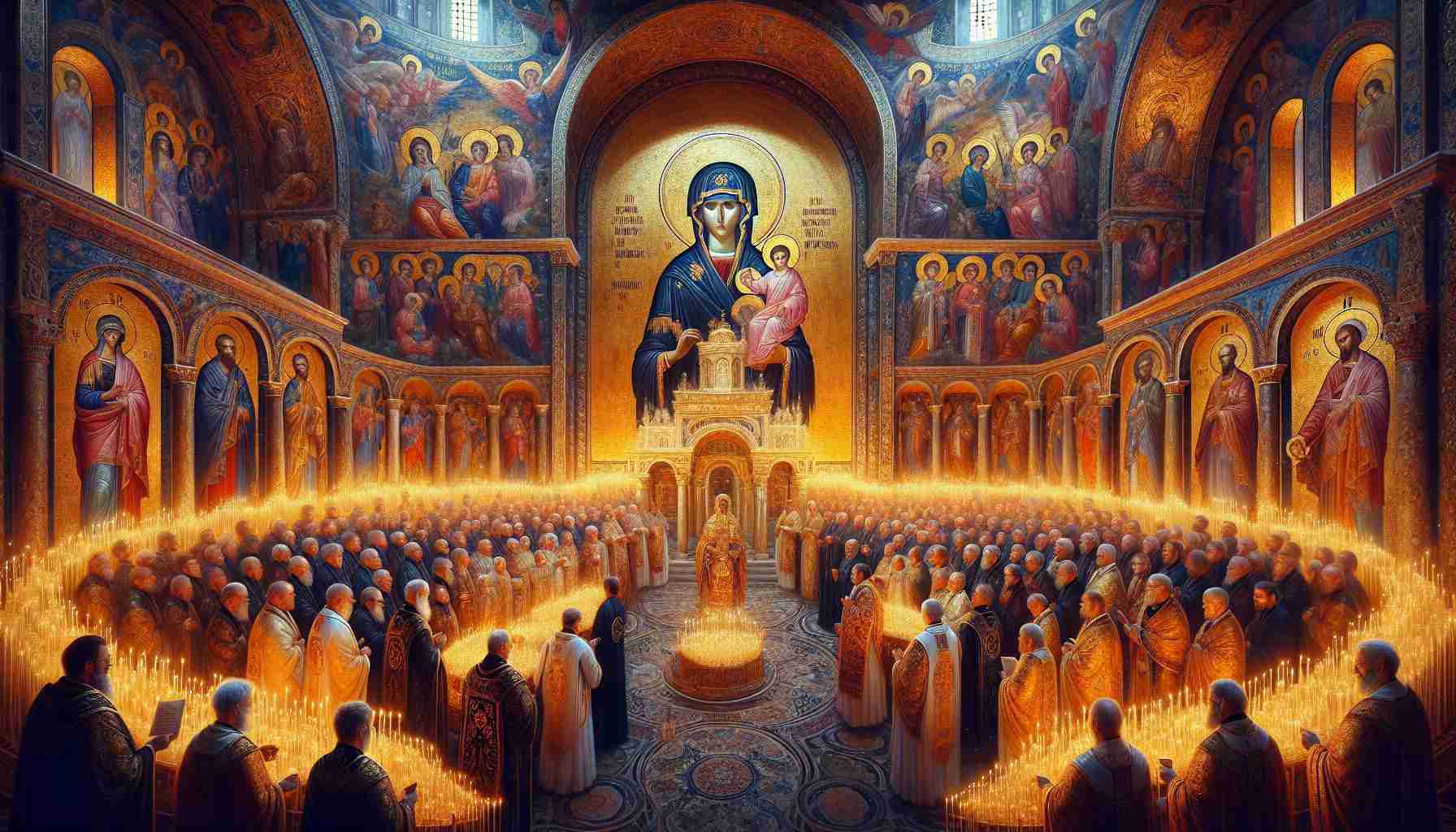

The scent of incense still clung to the marble colonnades of Ephesus, heavy in the sweltering air of June. Beneath the dome of the great Church of the Virgin Mary, the murmur of voices had hardened into thunder. The Council had been summoned not for celebration, but for battle—a battle not of swords, but of words, of creeds, of truth itself.
Sixty bishops filled the nave, their robes damp with sweat, their brows furrowed with prayer and fury. At their center stood Cyril of Alexandria, his jaw set like granite. Behind his eyes burned the conviction of centuries—the ancient faith of the apostles now under attack by one of their own. For Nestorius, Patriarch of Constantinople, had called Mary the Christotokos—Bearer of Christ—refusing her the title Theotokos, Mother of God. It may have seemed a matter of language, of abstract semantics. But to Cyril, and to the faithful in Ephesus, it was a strike at the heart of the Incarnation itself.
Could a mother bear only part of a son?
Could God be divided?
Outside the basilica, the city trembled with anticipation. Pilgrims filled the agora and pressed into shaded alleyways, praying in hushed Greek and Aramaic. Many had journeyed weeks by land and sea to witness the proceedings in the sacred city—Mary’s city. For it was here, legend claimed, that the Mother of God herself had sought refuge after the Ascension, dwelling with the apostle John in a humble stone house that still clung, like a secret, to the slopes of Mount Koressos.
Among the crowds, old women clutched rosaries, whispering the Magnificat: “Why is this granted to me, that the mother of my Lord should come to me?” (Luke 1:43). Luke’s words were a sword in the mouth of the common faithful, sharper than any theology forged in ivory towers. For if Mary was not Theotokos, then who, truly, was the child she nursed? Was He merely a vessel of divinity? A man adopted and filled?
And if so, had God ever truly become man?
Inside, the council raged on without Nestorius, who had refused to attend, denouncing the gathering as illegal—their condemnation, he insisted, would hold no weight. But Cyril would not yield. He stood not alone, but with the witness of scripture, with the teachings of Athanasius and the Nicene fathers, with the hymns of the poor sung in candlelight chapels for generations. He knew what the faithful believed in their bones—that Christ was not two natures loosely joined, but one Person, fully God and fully man, born of a woman who bore not merely a man, but God incarnate.
By twilight, the verdict was announced.
Nestorius was condemned.
The doors of the basilica flung open to the riots of rejoicing. Bells pealed from towers and domes. Chants lifted like incense over the harbor. Cyril was paraded through the streets, not as a conqueror, but as a steward of truth. From balconies hung images of Mary with the Christ-child in her arms, painted with stars upon her robe and fire in her eyes.
But not all hearts celebrated. In the eastern provinces, bishops loyal to Nestorius brooded in bitter silence. The schism would not be undone in a day. Though unity had been proclaimed in Ephesus, it would fracture along invisible lines in generations to come.
Still, the flame had been preserved.
In the dim hours of night, a young deacon named Theophilus climbed the hill west of the city, toward the house hidden among the pines. He had heard the stories as a child—that Mary had breathed her last here, that her hands had blessed Ephesus before leaving the world she once carried. He knelt beside the threshold stone, warmed by the memory of her presence. The earth here seemed to hum with a quiet certainty, as if agreeing with heaven’s verdict.
In the hush, he prayed—not in victory, but in trembling gratitude.
For though controversy had raged, truth had endured.
Though human minds fell into confusion, the mystery remained whole.
Down in the city, they were concluding the night’s liturgy in Mary’s basilica. Candles flickered as voices rose in the Trisagion, sung first in this very context: “Holy God, Holy Mighty, Holy Immortal, have mercy on us.” A hymn echoing from the Council of Ephesus to the east and west forevermore.
And the people of Ephesus—those who hung banners of Our Lady in their homes, who named their daughters Maria, who whispered Luke’s words over every cradle—stood warily rejoicing.
A heresy had been defeated this day.
But the war for truth would ever go on.
Still, for a time, guided by faith and courage, the church had spoken with one voice: Christ is one, not two. God was born of Mary.
And through the tumult of councils and emperors, of doctrine and dissent, the hill above Ephesus held fast—silent, sacred, and starlit—bearing quiet witness to the woman who once held heaven in her arms.